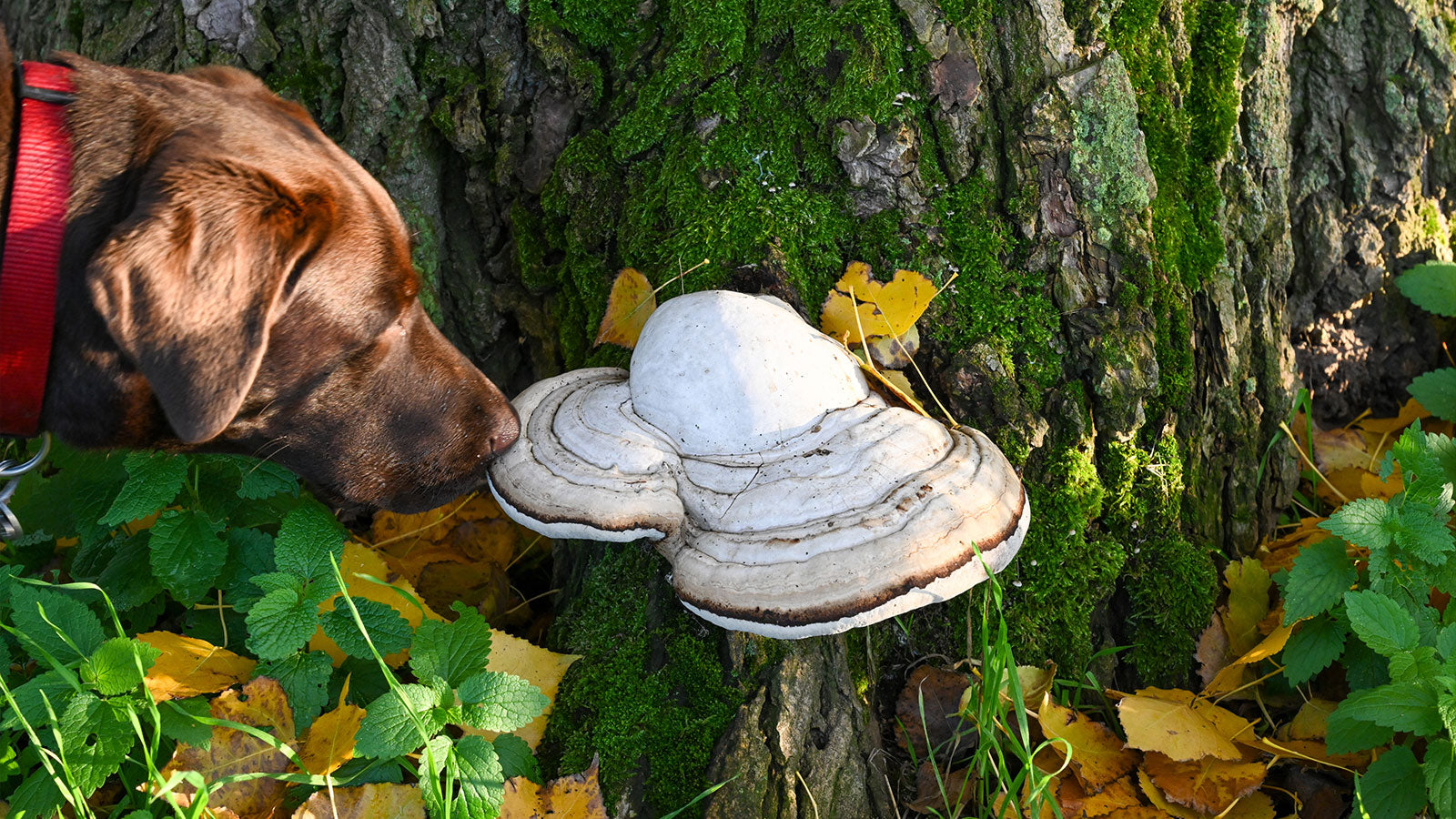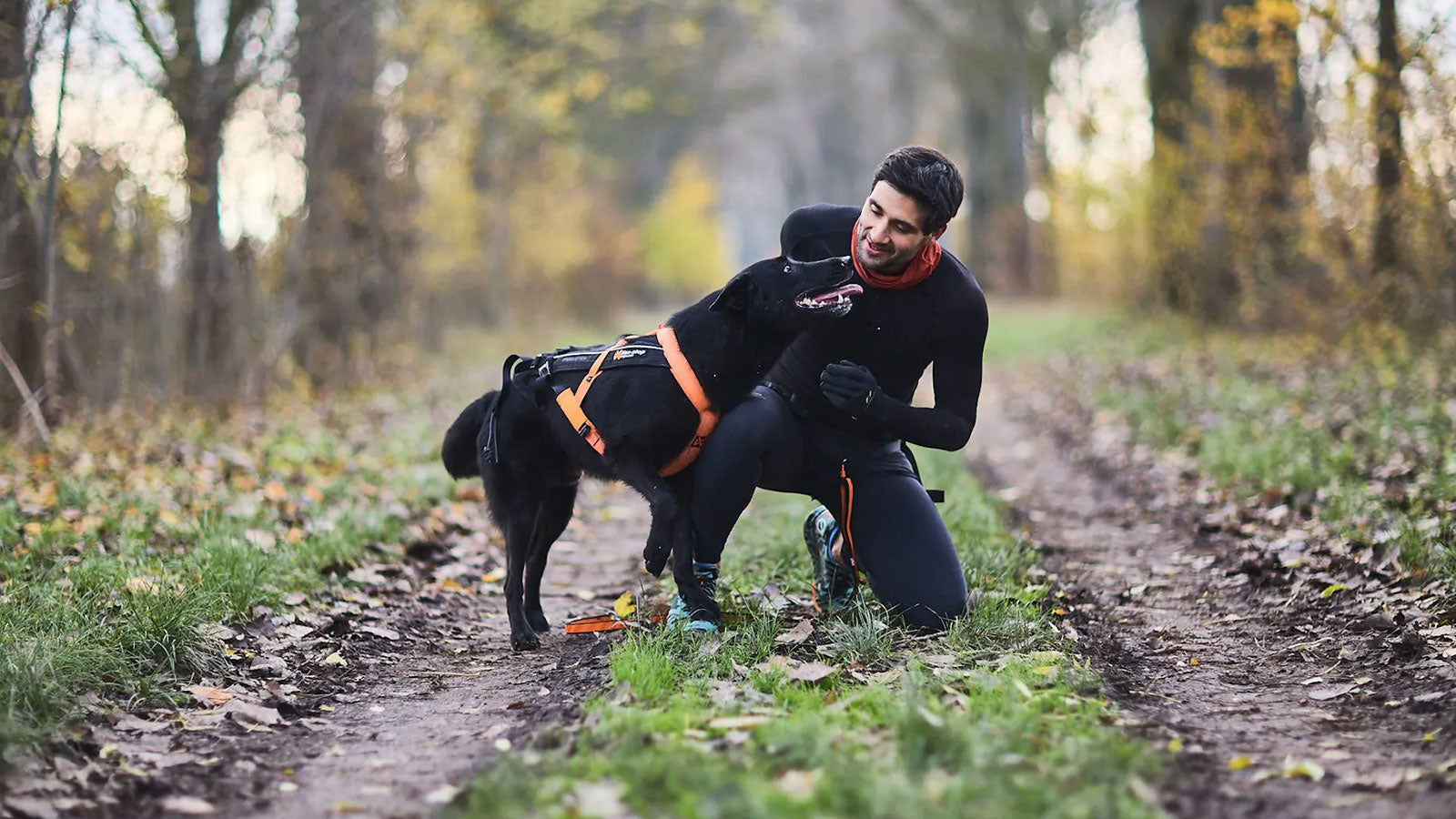Mushrooms are a staple in many cuisines around the world, celebrated for their unique flavors, textures, and health benefits. However, when it comes to dogs, feeding mushrooms can be tricky. While some mushrooms can offer health benefits for dogs, others are toxic and potentially life-threatening.
It’s essential for dog owners to know which mushrooms are safe and how to properly prepare them, as well as to identify those that should be strictly avoided. This guide covers everything from the types of mushrooms that are safe for dogs to consume, their health benefits, and preparation methods, to a detailed overview of toxic varieties and what to do in case of mushroom poisoning.
Are Mushrooms Safe for Dogs?
Not all mushrooms are created equal, and while some are safe and beneficial for dogs, others are extremely toxic. Store-bought mushrooms, such as button, shiitake, and reishi, can provide a range of health benefits. However, certain wild mushrooms, like the Amanita species, are highly toxic and can cause severe health issues or death. Understanding which mushrooms are safe is crucial for every dog owner.
Safe Mushrooms for Dogs and Their Benefits
The following mushrooms are considered safe for dogs when cooked properly and can provide a variety of health benefits:
- Button Mushrooms (Agaricus bisporus): These are the most common mushrooms found in grocery stores. They are safe for dogs and provide vitamins like B and D, minerals such as selenium and potassium, and antioxidants that support overall health.
- Shiitake Mushrooms (Lentinula edodes): Known for their immune-boosting properties, shiitake mushrooms are safe for dogs when cooked. They contain polysaccharides like lentinan, which help enhance immune function and may fight infections.
- Reishi Mushrooms (Ganoderma lucidum): Also known as the "Mushroom of Immortality," reishi mushrooms have adaptogenic properties that help regulate the immune system, reduce inflammation, and manage stress and anxiety in dogs.
- Maitake Mushrooms (Grifola frondosa): Also called "Hen of the Woods," Maitake mushrooms are safe for dogs in moderation. They contain beta-glucans that support immune health and may help fight cancer cells.
- Portobello Mushrooms: These large, mature versions of button mushrooms are safe for dogs when cooked. They offer a rich source of B vitamins, selenium, and fiber, which aid in digestion and overall health.
- Cordyceps Mushrooms (Cordyceps militaris): Cordyceps are known for their energy-boosting and anti-fatigue properties. They help improve stamina, reduce fatigue, and promote respiratory health in dogs.
- Turkey Tail Mushrooms (Trametes versicolor): These mushrooms are well-known for their immune-boosting properties and are often used in supplements to support dogs with cancer and other immune-related conditions.
- Chaga Mushrooms (Inonotus obliquus): Chaga mushrooms are rich in antioxidants and are believed to have anti-inflammatory and immune-supportive properties. They can be beneficial for dogs dealing with chronic inflammation.
- Lion's Mane Mushrooms (Hericium erinaceus): Known for their potential neuroprotective effects, Lion's Mane mushrooms can support cognitive function and nerve health in dogs, particularly in senior dogs experiencing cognitive decline.
- Enoki Mushrooms (Flammulina velutipes): Enoki mushrooms are safe for dogs when cooked and can provide a source of fiber, B vitamins, and antioxidants. They are known for their potential to boost immune function.
Health Benefits of Mushrooms for Dogs
Mushrooms, when safe and properly prepared, can offer a range of health benefits for dogs:
- Immune System Support: Mushrooms like Reishi, Shiitake, Maitake, Turkey Tail, and Chaga are rich in beta-glucans, which help stimulate the immune system to fight infections and diseases more effectively.
- Antioxidant Properties: Many mushrooms contain powerful antioxidants such as ergothioneine, glutathione, and superoxide dismutase (SOD), which help neutralize free radicals, reduce oxidative stress, and lower the risk of chronic diseases.
- Anti-Inflammatory Benefits: Mushrooms like Reishi, Chaga, and Cordyceps have anti-inflammatory compounds that can help manage conditions such as arthritis, allergies, and inflammatory bowel disease (IBD) in dogs.
- Support for Cognitive Health: Lion’s Mane mushrooms are known for their potential neuroprotective effects, which may support cognitive function and nerve health in aging dogs.
- Support for Liver Health: Reishi mushrooms have hepatoprotective properties that can support liver function and aid in detoxification processes.
- Energy and Stamina Boost: Cordyceps mushrooms are known for their ability to enhance stamina and endurance, making them beneficial for active dogs or those in training.
- Rich in Essential Nutrients: Mushrooms provide vitamins such as B-complex (B1, B2, B3, B5), D, and K, as well as minerals like selenium, zinc, copper, and phosphorus, all essential for a dog’s overall health and well-being.
- Potential Cancer-Fighting Properties: Turkey Tail and Maitake mushrooms, in particular, have been studied for their potential anti-cancer effects due to their immune-modulating properties and ability to inhibit tumor growth.
Toxic Mushrooms for Dogs: Identifying and Understanding the Risks
While the above mushrooms are safe and beneficial, many mushrooms are extremely toxic and should be avoided at all costs. Some of the most dangerous varieties include:
- Amanita Mushrooms: This genus includes highly toxic species like the Death Cap (Amanita phalloides) and Fly Agaric (Amanita muscaria). These mushrooms contain potent toxins, such as amatoxins and muscimol, which can cause severe liver damage, neurological symptoms, and death if ingested.
- False Morels (Gyromitra spp.): Despite their resemblance to edible morels, False Morels contain gyromitrin, a toxin that can cause vomiting, seizures, and even death.
- Jack-O’-Lantern Mushrooms (Omphalotus illudens): Often mistaken for chanterelles, these mushrooms contain toxins that can cause severe gastrointestinal upset in dogs.
- Destroying Angel (Amanita bisporigera): Another deadly Amanita species, the Destroying Angel can cause rapid onset of symptoms, including vomiting, diarrhea, seizures, and liver failure.
- Galerina Mushrooms (Galerina marginata): These small, brown mushrooms are deadly and often grow on decaying wood. They contain amatoxins similar to those found in the Death Cap mushroom.
- Lepiota Mushrooms: Small white mushrooms that may appear harmless but can cause severe liver damage and are potentially fatal if ingested.
- Clitocybe and Inocybe Mushrooms: These mushrooms contain muscarine, a potent toxin that can cause severe salivation, vomiting, diarrhea, difficulty breathing, and even death in dogs.
- Panther Cap (Amanita pantherina): Similar to the Fly Agaric, this mushroom contains neurotoxins like ibotenic acid and muscimol, which can cause hallucinations, tremors, and seizures.
Symptoms of Mushroom Poisoning in Dogs
If a dog consumes toxic mushrooms, symptoms can range from mild to severe and can vary depending on the type and amount of mushroom ingested. Common symptoms of mushroom poisoning in dogs include:
- Gastrointestinal Symptoms: Vomiting, diarrhea, abdominal pain, excessive drooling, and loss of appetite are common initial signs.
- Neurological Symptoms: Tremors, seizures, disorientation, incoordination, hallucinations, and coma may occur, especially with mushrooms containing neurotoxins like muscimol or ibotenic acid.
- Liver Failure: Yellowing of the skin and eyes (jaundice), lethargy, weakness, and increased thirst or urination can indicate liver damage, often caused by Amanita species.
- Kidney Failure: Symptoms like increased thirst and urination, vomiting, and lethargy can signify kidney damage, often due to certain Cortinarius species.
- Respiratory Distress: Rapid or labored breathing, blue gums, and collapse can occur in severe cases.
- Coma and Death: Without prompt treatment, some types of mushroom poisoning can lead to coma and death within days.
If you suspect your dog has ingested a toxic mushroom, seek immediate veterinary care. Time is critical in managing mushroom poisoning, and early intervention can make a significant difference in the outcome.
How to Safely Introduce Mushrooms to Your Dog's Diet
If you are considering adding mushrooms to your dog’s diet, here are some guidelines to ensure safety and health benefits:
- Choose Safe Varieties: Only use mushrooms known to be safe for dogs, such as button, shiitake, reishi, maitake, cordyceps, turkey tail, chaga, and Lion's Mane. Avoid any wild mushrooms unless they have been positively identified by an expert.
- Cook Mushrooms Thoroughly: Raw mushrooms can be tough to digest and may contain toxins that are neutralized through cooking. Always cook mushrooms thoroughly without any added seasonings, oils, or butter.
- Start with Small Amounts: Introduce mushrooms gradually to your dog’s diet. Start with small pieces and monitor for any adverse reactions like vomiting, diarrhea, or skin irritations.
- Use Plain Preparation Methods: Avoid seasoning or using garlic, onions, or other toxic ingredients when cooking mushrooms for dogs. Serve them plain and chopped into small, manageable pieces.
- Consider Mushroom Supplements: If you want to provide the benefits of medicinal mushrooms without the hassle of preparation, consider using commercially available mushroom supplements designed specifically for dogs. These supplements are usually formulated to ensure safety and effectiveness.
Mushroom Supplements for Dogs: Are They Safe?
Mushroom supplements for dogs have gained popularity in recent years due to their potential health benefits, particularly for immune support, anti-inflammatory effects, and even cancer prevention. These supplements often contain concentrated extracts of medicinal mushrooms like Reishi, Shiitake, Maitake, Cordyceps, Turkey Tail, Chaga, and Lion's Mane.
When choosing mushroom supplements for your dog, consider the following:
- Quality and Sourcing: Look for reputable brands that use high-quality, organic mushrooms. Avoid supplements with fillers, artificial ingredients, or harmful preservatives.
- Proper Dosage: Follow the manufacturer’s dosage recommendations based on your dog’s size and weight. Over-supplementing can lead to digestive upset or other adverse effects.
- Consult Your Veterinarian: Always consult with your veterinarian before adding any supplements to your dog’s diet, especially if your dog has underlying health conditions or is on medication.
Conclusion: Can Dogs Eat Mushrooms?
In summary, dogs can safely eat certain types of mushrooms that are properly prepared and served in moderation. Mushrooms like button, shiitake, maitake, reishi, cordyceps, turkey tail, chaga, and lion's mane can provide various health benefits, including immune support, anti-inflammatory effects, cognitive support, and essential nutrients. However, the potential dangers of toxic mushrooms should not be underestimated.
For dog owners, the key is to exercise caution, make informed choices, and consult with a veterinarian when introducing new foods or supplements to your dog’s diet. Avoid feeding wild mushrooms to your dog and be vigilant during walks or hikes to prevent accidental ingestion of toxic varieties.
Your dog’s health and safety are paramount. When in doubt, stick to safe, store-bought mushrooms and always prioritize a balanced and nutritious diet for your furry friend.






Share:
The Importance of Fiber in Your Dog's Diet
5 Essential Steps to Restore and Maintain Your Dog's Gut Health